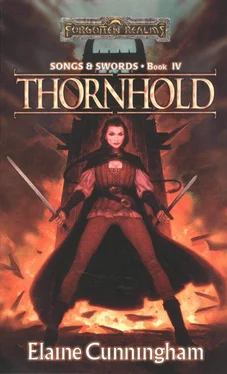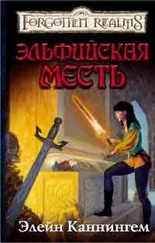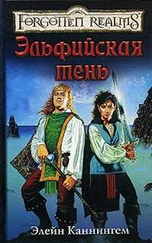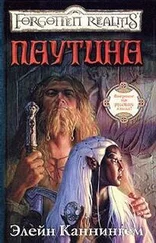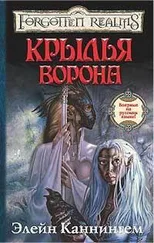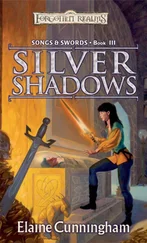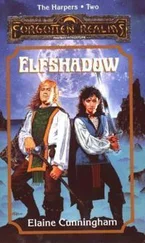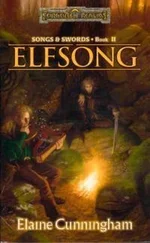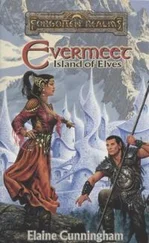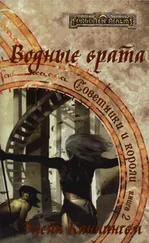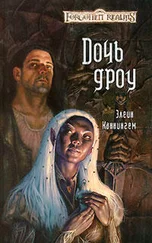Элейн Каннингем - Thornhold
Здесь есть возможность читать онлайн «Элейн Каннингем - Thornhold» весь текст электронной книги совершенно бесплатно (целиком полную версию без сокращений). В некоторых случаях можно слушать аудио, скачать через торрент в формате fb2 и присутствует краткое содержание. Год выпуска: 1998, Жанр: Фэнтези, на английском языке. Описание произведения, (предисловие) а так же отзывы посетителей доступны на портале библиотеки ЛибКат.
- Название:Thornhold
- Автор:
- Жанр:
- Год:1998
- ISBN:нет данных
- Рейтинг книги:3 / 5. Голосов: 1
-
Избранное:Добавить в избранное
- Отзывы:
-
Ваша оценка:
- 60
- 1
- 2
- 3
- 4
- 5
Thornhold: краткое содержание, описание и аннотация
Предлагаем к чтению аннотацию, описание, краткое содержание или предисловие (зависит от того, что написал сам автор книги «Thornhold»). Если вы не нашли необходимую информацию о книге — напишите в комментариях, мы постараемся отыскать её.
Thornhold — читать онлайн бесплатно полную книгу (весь текст) целиком
Ниже представлен текст книги, разбитый по страницам. Система сохранения места последней прочитанной страницы, позволяет с удобством читать онлайн бесплатно книгу «Thornhold», без необходимости каждый раз заново искать на чём Вы остановились. Поставьте закладку, и сможете в любой момент перейти на страницу, на которой закончили чтение.
Интервал:
Закладка:
The smell hit him suddenly, twisting his stomach and sending his heart plummeting into his boots. There was no mistaking that smell; any dwarf who had ever raised an axe in battle knew it well. Coppery, heavy, strangely sweet, and utterly sickening—the smell of spilled blood turned black and dry, bodies gone cold.
Terrible, numbing dread swept through Ebenezer like a winter storm, robbing him of strength and will and forward motion. He skidded to a stop. A single keening cry burst from his throat—the first and last mourning he would allow himself before he knew the whole of it. He forced himself into a run while he could still trust his legs to carry him where he needed to go.
He stopped again at the entrance to the Hall of Ancestors, stunned by the destruction of a monument that had stood for untold centuries. The ancient stone dwarves had toppled and lay in broken pieces among the dwarves their fall had slain.
Ebenezer stooped by the nearest dwarf and clamped his jaw shut to bite off a cry. The Stoneshaft patriarch, his Da, had led the charge. The old dwarf had not been killed by the falling statues; that was horrifyingly clear. Stone dwarves did not wield swords and spears with such slow, cruel expertise.
Ebenezer lifted his gaze, blinking hard to clear his suddenly blurred vision. Several humans lay sprawled nearby, bearing the unmistakable marks of a dwarven axe. Ebenezer took some comfort in this. His father had not died easily, but he had died well.
He rose and wandered through the chamber, his rage building with every dwarf he identified—and growing hotter still with each dwarf that he could not. Ebenezer was no stranger to battle, but the carnage here was of a sort seldom seen. The stamp of unmistakable pleasure, of long and lingering evil, was upon each cold and tormented dwarf.
Ebenezer found more of the same inside the great hall. Not a single dwarf lived. Stoneshaft Hold had been decimated, and the bodies of his brutally slain kin left to molder in the empty halls.
Grief numbed him, mercifully slowing his wits and numbing his heart. He moved in a daze through the devastation, tending the dead, marking their names in his memory. Time slowed down, became utterly without meaning. His face was as set as granite, his eyes dry and hard as he gathered the bodies of kith and clan into a single grave.
Hours passed. In some dim corner of his mind, Ebenezer marked the time, and knew that far above him, a plump waxing moon rose over the Sword Mountains. But in this place, the dwarf knew only darkness and the terrible task before him. He did not stop for rest until all of Clan Stoneshaft had been decently laid to rest beneath a pile of mountain stone.
When the task was done, he slumped to the ground and tried to put words to the nagging fear in the back of his mind.
The ruined face of young Frodwinner rose up in memory. Of all the Stoneshaft dwarves, he had died the hardest and best. He’d taken enough wounds to kill a trio of dwarves and kept on fighting. Seven humans and four half-orcs had fallen to his axe. Of course, Frodwinner had more to lose than nearly anyone else in the clan. He was just two days into a wedding feast, wed to the prettiest, feistiest dwarf maid in a hundred warrens. Frodwinner and Tarlamera should have had centuries of life before them. Frodwinner had been barely fifty. He was just a kid. Just a kid.
And with that lament, Ebenezer found words for his concern:
There had been no children among the slain .
This realization slammed into Ebenezer like a hobgoblin’s fist. His first response was relief—like most dwarf clans, his had not been blessed by many children. He loved kids, loved every one of the rowdy little scamps. But if they were not here, where were they?
As the dwarf thought about this, he also realized that he had not accounted for several adult members of the clan, including some of his own near kin. His Da rested in the cairn, beside the cantankerous, beloved dwarf woman who had borne him nine stout children. Most of these offspring, Ebenezer’s brothers and sisters, also slept beneath the stone. Tarlamera was not among them.
He sat upright. Why hadn’t he realized that earlier? Tarlamera was the sibling closest to him in age and temperament. They’d fought their way through a happy childhood, and hers was the face he always sought first in a crowd of his kin. Why hadn’t he looked for her and noted that she was not to be found?
Ebenezer had heard tell of people who got through rough spots by blocking out important things, not thinking about them until they were armed and ready, so to speak. Maybe that was what he was doing. Funny, but until now he would have called that sort of thing soft-headed.
But the time for protective denial was over. Ebenezer began to sort through the grim facts, and a pattern became clear. Most of the clan’s best fighters had been slain, as well as those who spent their days tending to the practical needs of the clan: hearth mothers, brewers, coopers, cobblers. All of the elderly dwarves were dead, and the few that had had the odd infirmity. The missing members were those who had special skills—skills that no one could master quite as well as could a dwarf. Their best miners were gone, including Tarlamera, whose instincts for the stone were so keen Ebenezer suspected she could smell deposits of ore and gemstones from fifty paces. The best gem workers were missing, and the finest smiths. A few of the females of breeding age. The children.
In short, everyone who had value in some distant slave market.
Rage, cold and fierce and all-consuming, rose like bile in the dwarf’s throat. There was yet another thing he’d conveniently blotted out: his own capture by a passel of Zhents. Suddenly he realized the true and devastating nature of his fear.
Slavery.
Ebenezer hauled himself to his feet, grabbed some weapons, and left behind the graveyard that had been his home. He struck out for a secret tunnel—a steep, curving passage that led up to the stronghold some humans had built on the mountain above a few decades past.
Knights, they called themselves. They were a bunch of smug-faced meddlers who kept themselves busy tidying up the area of trolls and bugbears and so forth, reminding Ebenezer of dwarf grannies fussing about the clanhold, forever straightening up the furniture and dusting off the what-nots.
If there were answers to be found, Ebenezer was certain that the nest of those troll-hunting, minding-the-world’s-business, pain-in-the-back-of-the-lap humans was a reasonable place to start looking.
Bronwyn followed her father down the tower stairs back into the bailey. The first signs of real animation crept into Hronulf’s voice as he described the fortress to her, its history, its defenses, and the good work that the paladins did for travelers who passed by. He stopped here and there to chat with the servants and exchanged bluff greetings with the other knights. To each knight, he introduced her pointedly and proudly as his lost daughter. Oddly enough, that did little to warm Bronwyn’s heart or make her feel wanted. It was almost as if he felt a need to justify her presence here. But Bronwyn noticed the deep affection and respect that all the fortress inhabitants showed their commander. Those who knew Hronulf, clearly held him in highest regard. This reminded her of the knight who had sent her here.
“I met Sir Gareth Cormaeril in Waterdeep,” she said. “He sends his regards.”
Hronulf’s face lit up. “You have seen him? And he knows who you are? This news must have brought him great joy!”
“I told him my name, but he did not seem to connect me with you in any way, not even when I told him I was seeking you out in hope that you might have information about my lost family” Bronwyn said. “He commented that you had lost family, too, and would most likely be willing to give me whatever aid you could, but he did not put the pieces together.”
Читать дальшеИнтервал:
Закладка:
Похожие книги на «Thornhold»
Представляем Вашему вниманию похожие книги на «Thornhold» списком для выбора. Мы отобрали схожую по названию и смыслу литературу в надежде предоставить читателям больше вариантов отыскать новые, интересные, ещё непрочитанные произведения.
Обсуждение, отзывы о книге «Thornhold» и просто собственные мнения читателей. Оставьте ваши комментарии, напишите, что Вы думаете о произведении, его смысле или главных героях. Укажите что конкретно понравилось, а что нет, и почему Вы так считаете.
